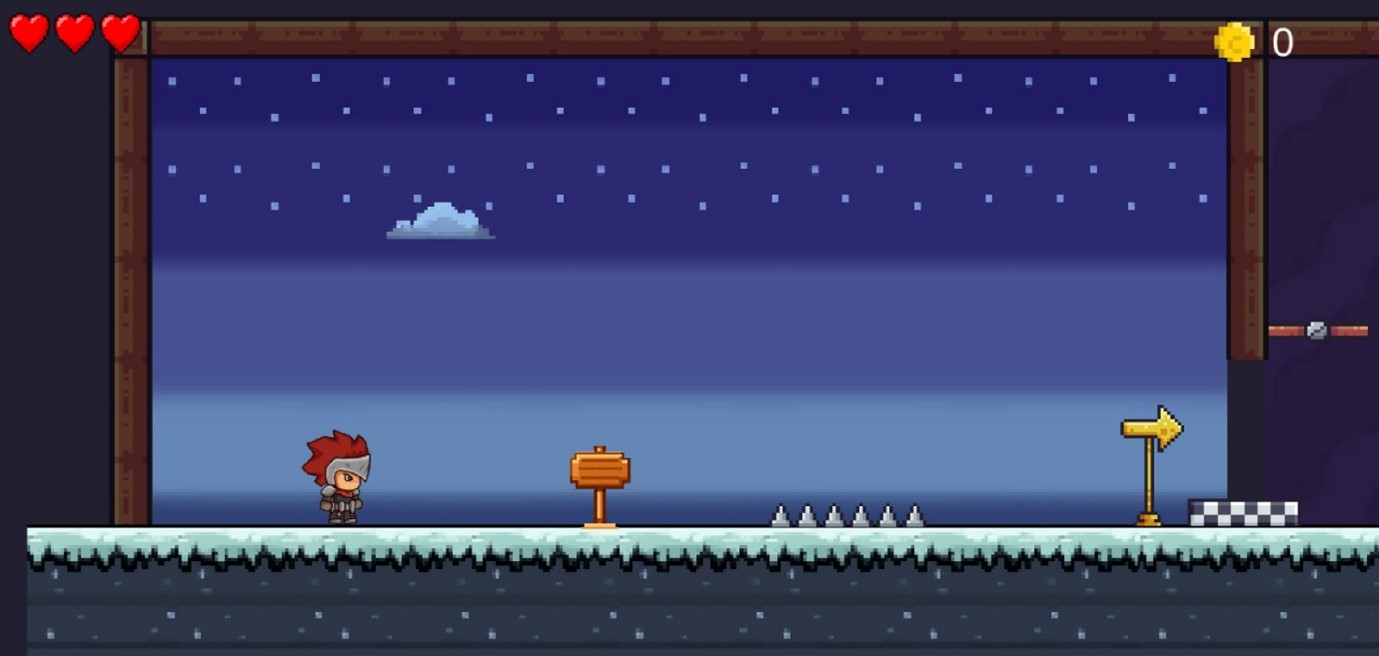Shades of Morality
Would immortality change who you are?
By Houhua Ma, Nikki Rademaker, and Phillip Shen and Yanna Smid
Overview
This project was created for the course Video Games for Research. Together with Yanna Smid, I developed a 2D platformer game called "Shades of Morality" to investigate how immortality affects players' moral decisions. The project explores whether the absence of death changes decision-making in virtual environments. Players encounter morally charged dilemmas while playing two versions of the game: one where they can die (Mortal Mode) and one where they cannot (Immortal Mode). The research and data analysis were done with the help of Houhua Ma and Phillip Shen.
The game contains:- Moral dilemmas: players face six carefully crafted moral choices that influence the game. For example, players choose between freeing a trapped human or taking a sword for personal gain.
- Mortality mechanics: the game has two levels: one mortal and one immortal. Mortal players can die and respawn, while immortal players are immune to death, removing personal risk.
- Immersive gameplay: platformer elements such as traps, enemies, and interactive environments are used to challenge players.
An example of the gameplay can be seen below.
The Project
In total, 36 participants played two levels of the game: one mortal and one immortal. Participants first played a mortal version, then the matching immortal version.
Participants had to go through several rooms to complete a level. Each decision room had a different moral dilemma. The game had four different versions, each with a different order of decision rooms. This ensured that every decision was played equally often in mortal and immortal conditions. Changing the room order also reduced patterns.
Each version had eight rooms:- One start room: with instructions and an immortality apple if immortal.
- Three decision rooms (moral vs. immoral choices): for moral dilemmas.
- Three normal rooms (platforming and enemies): for gameplay and to reduce the likelihood of participants discovering the research purpose.
- One final room: where the player finishes the level.
Players encountered the following moral dilemmas in the corresponding decision rooms during the game:
- CageRoom: free the human (moral) or get the sword (immoral).
- CoinRoom: donate money (moral) or keep the money (immoral).
- FireRoom: save the villager from the fire (moral) or let them die and stay unharmed (immoral).
- FireballRoom: let her live (moral) or kill her for powers (immoral).
- FoodRoom: give the starving NPC the cookie (moral) or eat the cookie yourself (immoral).
- ShoesRoom: compliment his shoes (moral) or steal his shoes for higher jumps (immoral).
During gameplay, we logged which choices players made and how long they took to decide. After the game, players filled in a questionnaire about their experience and how they felt about their choices.
The results showed no significant difference in how moral players acted between the two modes. However, players took longer to choose immoral actions, showing hesitation. players reported in the questionnaire that they still cared about their choices, but the game did not punish immoral behavior sufficiently. Many players still preferred to act morally unless an immoral choice gave a clear reward.
Although immortality did not seem to lead to more moral decisions overall, the project showed that decision-making is still influenced by gameplay context and rewards. Feedback suggested that players would be more impacted by mortality if the stakes were higher.
Our project paper "No Death, No Consequences? Immortality's Impact on Gaming Morality" can be found here.
Tools
The game was developed in Unity version 2020.3.18f1 as a 2D platformer. We used a basic layout template provided by Nick Bota for environment and the basic platformer mechanics. We programmed additional mechanics and game elements.
Asset packages from the Unity Asset Store were used to create the environment and characters: